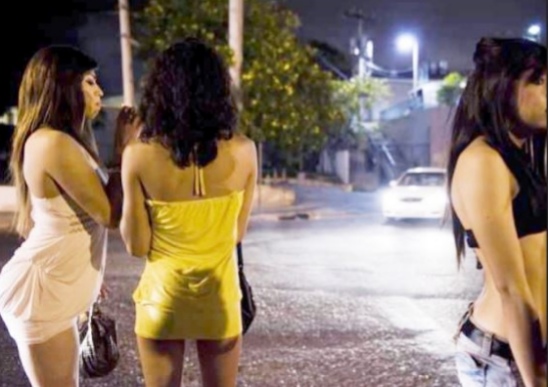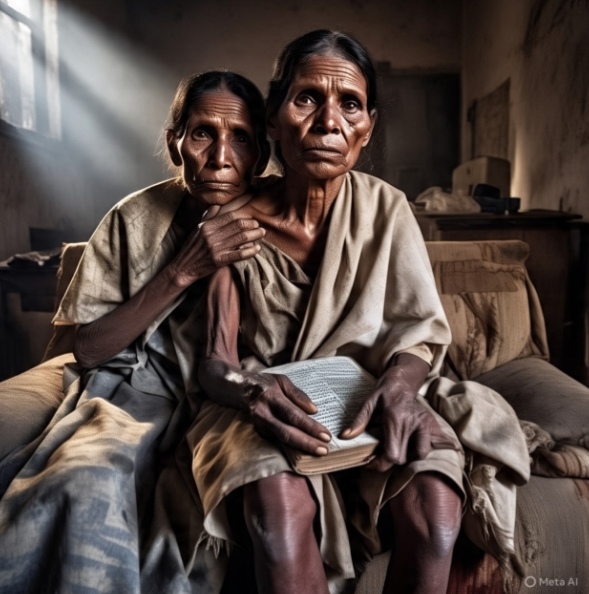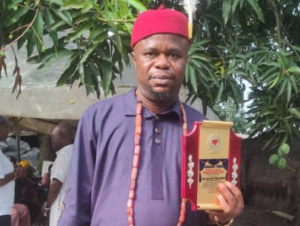Panic in Imo as 73,000 cases of HIV-AIDS are reported.
3 min read
A disturbing report Umuaka Times came across last week claimed that Imo State is deeply troubled with an alarming rate of 73,000 cases of HIV/AIDS. Umuaka Times local affairs correspondents confirmed that the disturbing news alert came from official medical authorities in the state.

Owerri, the capital city of Imo State is known to have more hotels in Nigeria or even West Africa more than any other city. The presence of high profile hotels in Owerri is also complimented by the heavy presence of universities in the same city. Owerri, has about 5 universities; Federal University of Technology Owerri (FUTO), Imo State University, the African University of Science and Technology (AIST CCE Owerri), and the Federal Polytechnic, Nekede and Alvan Ikoku University of Education. It is hard to see another capital city of a state in Nigeria with such number of universities clustered in one area.
With the universities and hotels in Owerri coupled with the rising economic hardship, commercial sex business among female students found a deep expression in the city. A social commentator who spent time in the city sometime last year, disclosed to Umuaka Times that out of every 10 commercial sex hawkers in Owerri, 7 of them are students. These developments, from the views of top stakeholders in the state have led to the surge in the crisis of HIV/AIDS in the state. Previously, statistics of 2024 HIV prevalence by states showed that Rivers State has the highest number of people living with HIV, with 208,767 recorded cases, followed closely by Benue State with 202,346 cases, and Akwa Ibom with 161,597.”
During the cause of this investigation, Umuaka Times came across a report which dashed the hope of establishing the accurate figure of HIV infections in the state. According to the report, “It’s difficult to provide a precise number of people with HIV/AIDS in Imo State. While studies show a prevalence rate of 1.5% in Imo State, and another study in Owerri West found 8.1% of individuals tested positive, these figures are based on specific studies and surveys, not a comprehensive state-wide census.”
The situation in Imo State seriously calls for a statewide intervention from the public and private sectors. Some top voices in the state especially those in the medical field have at different times called for a holistic fight against the ailment in the state. In the current 2025 budget of the state, “the Ministry of Health was allocated N31,933,234,000, representing 4.65% of the total budget of N807,088,041,220. This budget allocation includes both recurrent and capital expenditures. The governor has indicated a commitment to expanding the Ministry of Health’s budget in the future.” Umuaka Times could not establish how much of the budget would go into the fight against HIV-AIDS.

Image shows two girls who have AIDS.
From indications, Imolites and their visitors seem not to be in a hurry to change their risky lifestyles. One of the biggest tragedies of HIV-AIDS globally is that the ailment has always succeeded to create orphans and vulnerable children whose parents died of HIV-AIDS. A document Umuaka Times came across on the internet about the orphaned children in Imo State via the AIDS epidemic says, “In Imo State, there’s a focus on supporting Orphans and Vulnerable Children (OVC) through various initiatives, particularly those linked to HIV/AIDS. Organizations like Caritas Nigeria and the Accelerated Control of HIV Epidemic and Sustainability Solutions (ACCESS) project, funded by The U.S. President’s Emergency Plan for AIDS Relief (PEPFAR), are actively involved in empowering these children. These efforts include providing skills training (barbing, sewing, welding), business start-up tools, and other support to improve their livelihoods and overall well-being. ”
All these boil down on the need to strengthen HIV-AIDS education in the state. From the views of Ralph Fiennes, “Education, awareness and prevention are the key, but stigmatization and exclusion from family is what makes people suffer most.” Nelson Mandela also makde a similar remark: “History will surely judge us harshly if we do not respond with all the energy and resources that we can bring to bear in the fight against HIV/AIDS.”
Imo people and Nigerians at large as a matter of extreme urgency must advance education on HIV-AIDS to the next level, if not, the entire society will continue to suffer and more orphans and deaths will be recorded. The question is this: to what extent will NGOs continue to render assistance to victims and orphans of HIV-AIDS in Imo State? Imo is indeed in trouble.




